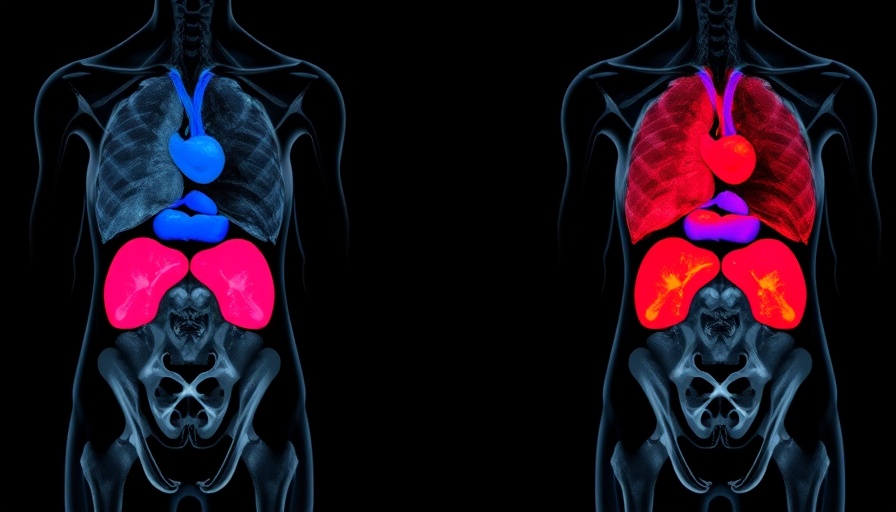
Unmasking the Hidden Dangers of Visceral Fat
Recent research has shed light on the insidious role of visceral fat—an invisible type of fat that lurks around our internal organs. This particular study reveals that even those who appear healthy may harbor harmful amounts of visceral fat, which has been directly linked to accelerated heart aging. Unlike subcutaneous fat, which is visible and more benign, visceral fat presents a hidden risk, making it a subject of significant concern for both health professionals and the general public.
How Visceral Fat Influences Heart Health
Using cutting-edge AI technology and imaging techniques from the UK Biobank, researchers analyzed data from over 21,000 participants. Their findings link increased visceral adipose tissue to rapid heart aging, characterized by stiffness and inflammation in heart tissues. This scientific analysis demonstrates how visceral fat remains undetectable from the outside yet plays a pivotal role in the overall health of individuals, particularly those in high-stress environments, such as business professionals.
Disparities in Fat Distribution: Men vs. Women
The distinction between male and female fat distribution highlights unique health risks and benefits. The research indicates that men with an apple-shaped body (more visceral fat around the belly) face a higher risk for early heart aging, while women with a pear-shaped body (more fat around the hips and thighs) often experience protective effects against heart aging. Understanding these differences is crucial, as it can inform tailored wellness strategies for different demographics.
The Role of Hormones in Heart Aging
Interestingly, the study also explored the connection between hormones and heart health, revealing that hormonal levels, particularly estrogen in premenopausal women, might mitigate heart aging effects related to visceral fat. This finding opens up avenues for further research into hormonal therapies that could support heart health across genders, especially as employees in demanding jobs balance work with personal health.
The Psychological Impact of Hidden Health Risks
The implications of hidden visceral fat extend beyond physical health—they resonate on a psychological level too. Business professionals often juggle immense responsibilities, leading to stress and potentially ignoring the quieter signals their bodies send. This research emphasizes the importance of regular health screenings that go beyond standard weight checks. A proactive approach in assessing hidden health risks may enhance overall wellness and productivity in the workplace, urging professionals to prioritize their health.
Steps for Managing Visceral Fat and Supporting Heart Health
Addressing visceral fat is crucial for those in high-stress careers. Key strategies include incorporating regular physical activity—especially strength training and cardio exercises—which are proven to help reduce visceral fat. Likewise, focusing on a balanced diet rich in whole grains, lean proteins, fruits, and vegetables can aid in managing these hidden health risks. Professionals should also consider stress management techniques, such as meditation and mindfulness, to enhance mental and physical well-being.
Moving Forward: A Call to Action
As more research uncovers the damaging effects of visceral fat on heart health, it is imperative that those in leadership positions take note. Regular health assessments, inclusive of advanced imaging technology and blood tests, should be essential components of workplace wellness programs. Business leaders should advocate for health education initiatives and transparent communication regarding heart health risks in their organizations. By prioritizing wellness, they not only invest in their health but foster a culture where employees feel supported and valued.
In conclusion, hidden health risks such as visceral fat are crucial topics for professionals to consider as they navigate their demanding careers. Awareness and actionable strategies can unlock pathways to better health outcomes, ensuring longevity both personally and professionally.
 Add Row
Add Row  Add
Add 




Write A Comment